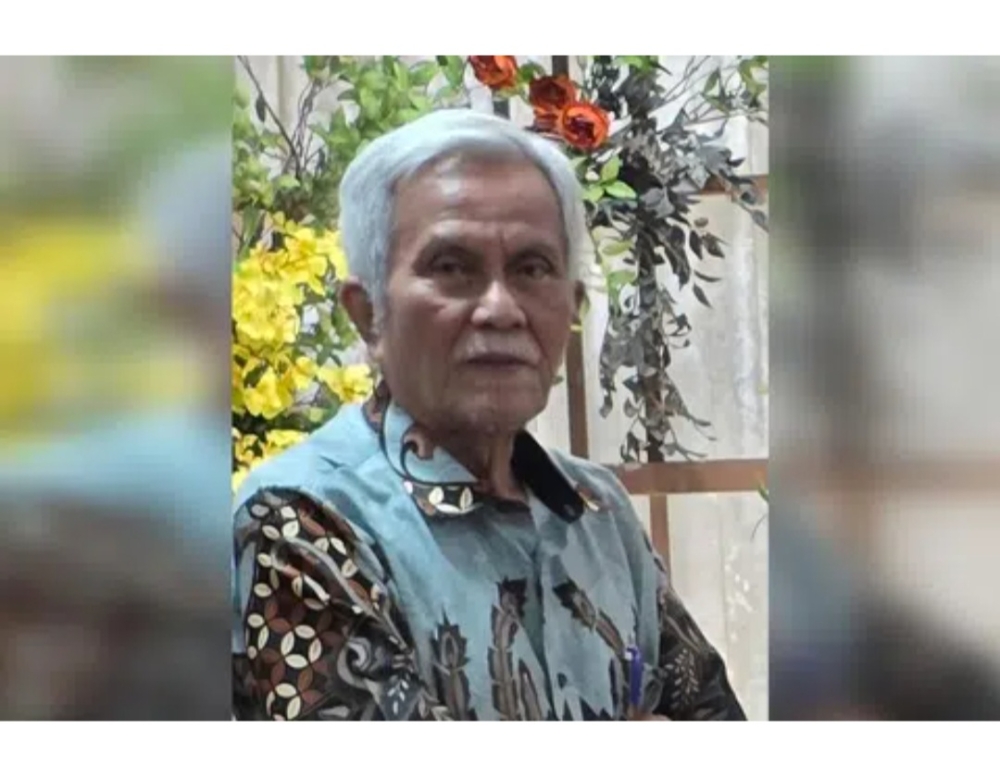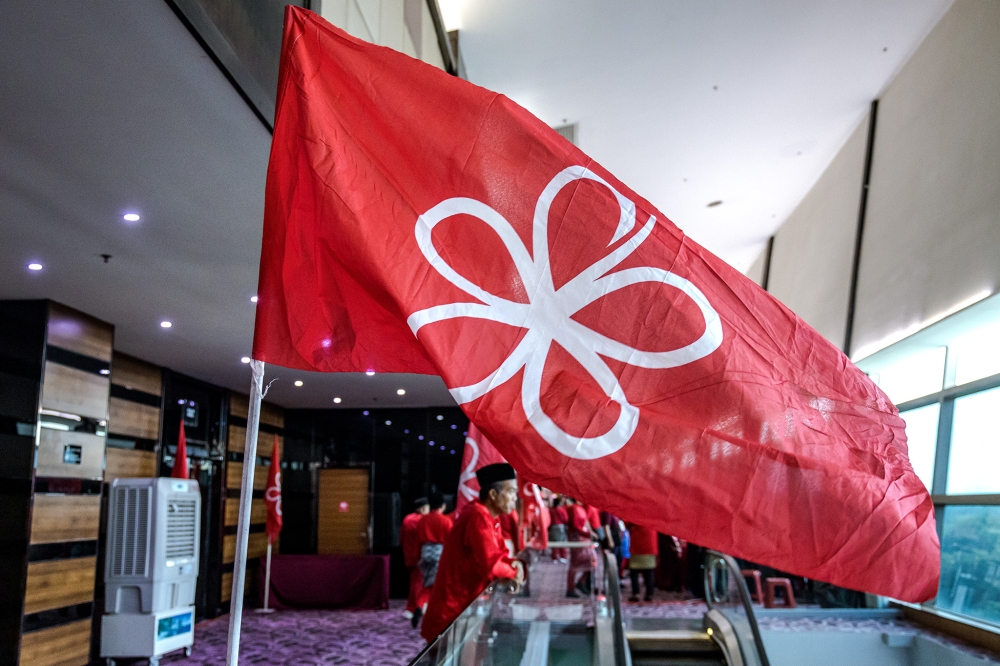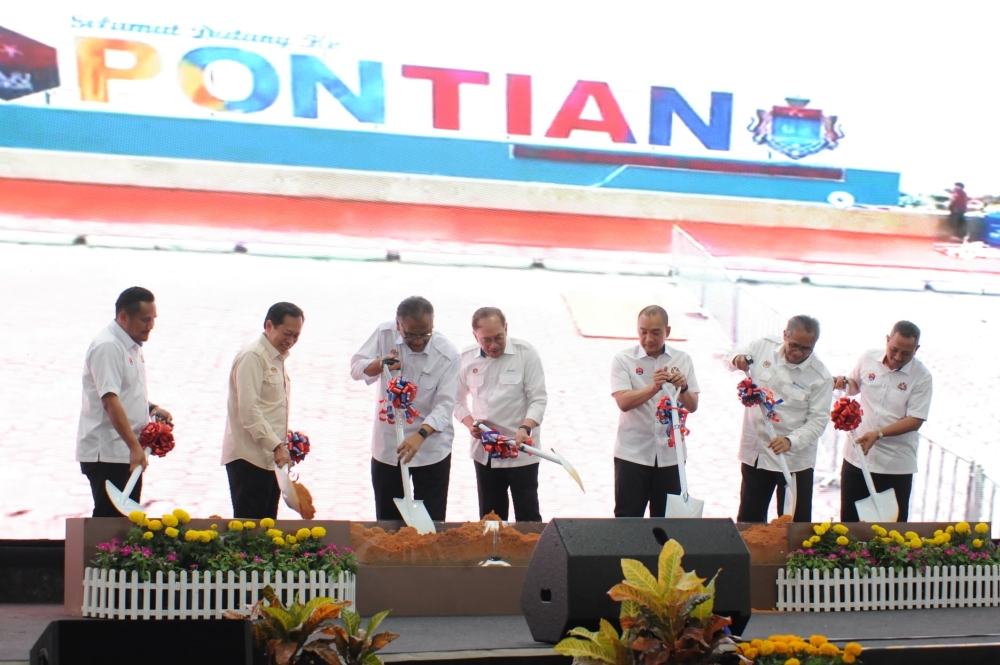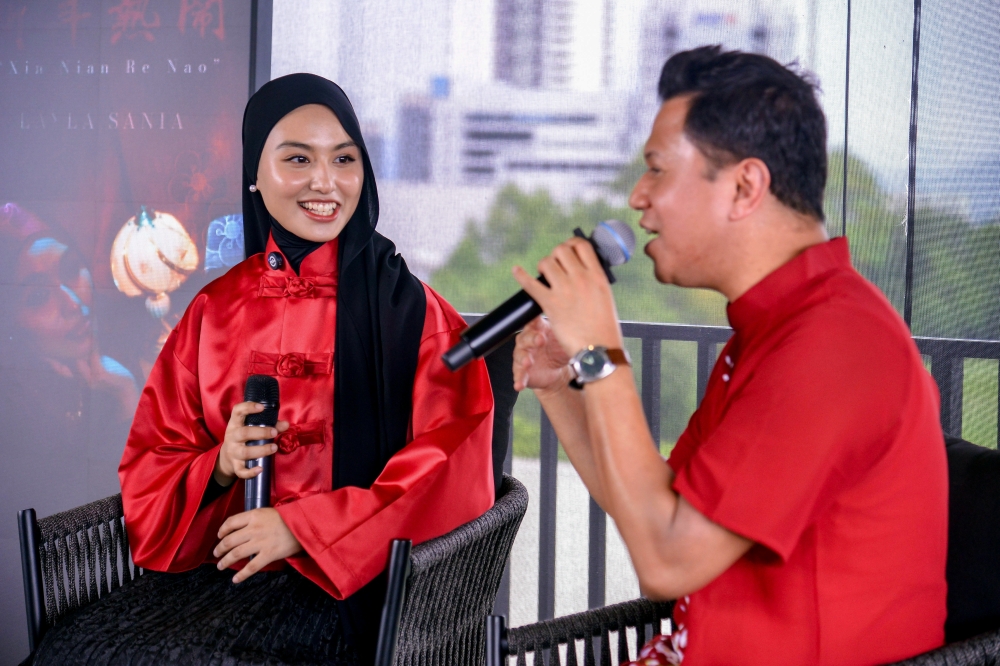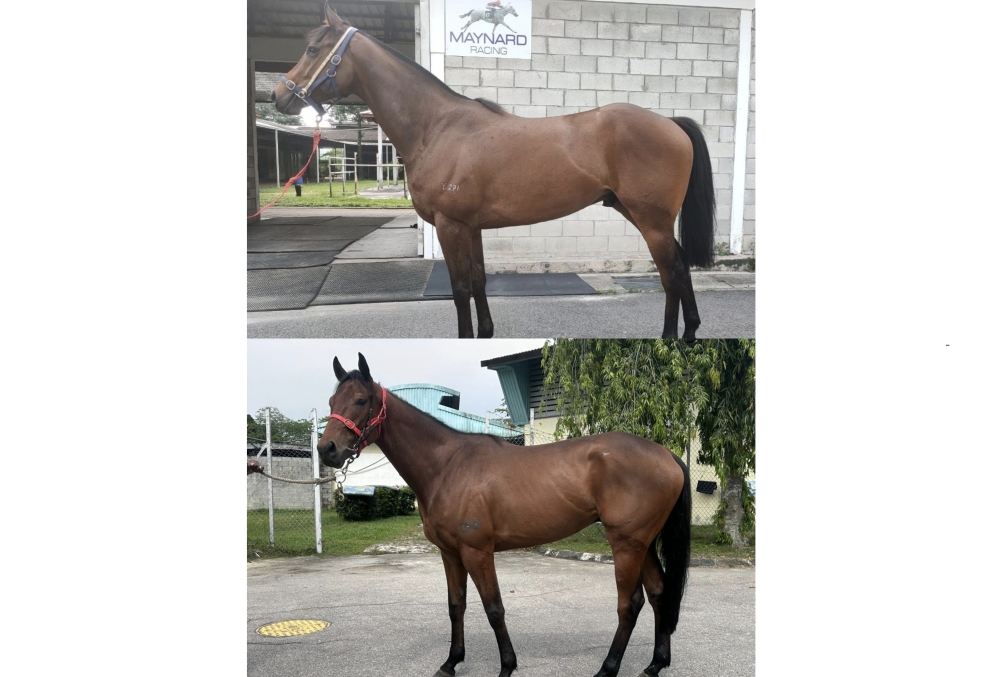KUALA LUMPUR, Oct 21 — No stranger to controversy, former DAP member Hew Kuan Yau, popularly known as Superman Hew found himself in yet another familiar troubling phase. This time, over a comic book on China's Belt and Road Initiative (BRI) and Malaysia-China diplomatic ties.
Suffice to say that the book, written by Hew, is essentially propaganda material to promote China's controversial BRI and an attempt to play down the anxiety, particularly among some Malay Muslims who are sceptical of anything associated with China (read: Communism) and everything associated with the DAP (read: accused of propagating Communist values).
To begin with, what is the comic book actually about?
Titled Belt and Road Initiative for Win-Winism, the book was released to commemorate the 45th anniversary of the establishment of diplomatic ties between China and Malaysia. The book aims to prop up the BRI by talking about the vision behind the initiative and its long-term benefits, narrated by two cat illustrations, Aisha and Komie. Local cartoonist, Chong Po Ling, whose previous works were featured in the Astro AEC Chinese-language channel, are used in the book.
No surprise on the effort as Hew is the chief executive of the Malaysia-China Business Council (MCBC).
The comic book features a chapter, explaining China's “Chinese Dream” based on the republic's four pillars namely; a socialist state, an ancient Oriental civilisation, a major developing country and a rising emerging nation, and concluded that the BRI is the “concrete realisation” of the said dream.
In an apparent comparison with the Western world and its civilisations, the book explains China-led sea voyage histories to foster diplomatic and business ties, notably via a Chinese court eunuch, Zheng He, or Cheng Ho.
The book attempts to highlight how China was already a superpower nation even in yesteryear, and did not resort to any colonisation unlike other global powerhouses, but instead, strove to promote peace and stability.
A visualised Chinese president Xi Jinping in the book narrates the basis behind the BRI ideology, stressing how China cannot achieve development in isolation from the world and vice versa.
The book touts Xi as an advocate of peace for a “win-win scenario rather than zero-sum”, and China's aim to help its neighbours via a shared prosperity vision, which helped the republic gain its superpower nation status.
It also takes a dig at the US, which is painted as a selfish nation, owing to president Donald Trump's 'America first' policies.
The comic depicts the US European Recovery Programme (ERP) plan in 1948, as one that was carefully crafted to merely further American capitalism, with only selected capitalist nations in Western Europe receiving monetary aid to rebuild after World War II, while communist nations in Eastern Europe received nothing.
BRI on the other hand, is painted as the complete opposite of the ERP, void of the “cold war mentality”, and one which promotes inclusiveness.
The Malaysian connection
The comic book also shares Malaysia's diplomatic history with China, highlighting former prime minister Tun Abdul Razak Hussein's efforts to forge diplomatic ties with the republic, and current Prime Minister Tun Dr Mahathir Mohamad's stand to not be overinfluenced by Western ideas.
It also ridiculed former prime minister Datuk Seri Najib Razak, over the RM2.6 billion found in his personal bank account.
Najib is also pictured as plotting to buy votes, and allegedly taking advantage of China's BRI investment, by announcing infrastructure projects in the country.
A cartoon resembling fugitive tycoon Low Taek Jho also made it into the book where he is pictured partying with Najib.
Datin Seri Rosmah Mansor was also not spared as she is portrayed as someone with extravagant tastes, similar to that of jailed former Taiwanese president, Chen Shui-bian's wife. Chen and his wife Wu Shu-chen were both sentenced to life imprisonment in 2009, after being found guilty of corruption.

So, what exactly went wrong with the book's contents which irked among others Youth and Sports Minister Syed Saddiq Syed Abdul Rahman?
The point of contention lies in pages two and three of the book, which discusses the inclination of Malay Muslim youths towards political developments in Islamic nations and the Middle-East, as opposed to Communism.
On page 3, the book highlights a 2018 Merdeka Centre finding, which concluded that 18.1 per cent of Malaysian Muslims surveyed were supporters of the Jemaah Islamiah terror group, while only 12.6 per cent of Muslims in Indonesia, 15.7 per cent of Muslims in the Philippines and 9.6 per cent Muslims in Thailand, in contrast, felt the same way.
Hew, who professes to be a historian, then wrote: These radical Malay youths may not necessarily have a favourable view of China due to its ethnic policy in Xinjiang.
“Uigur, a minority nationality living in Xinjiang, some of whom are part of the separatist movement and threatened the national unity and social harmony, were banned by the Chinese government,” a paragraph read.
Hew appears to defend China's segregation of the Uighurs, who are mostly Muslims, while labelling those who criticise the republic over the mistreatment as radicals.
In October last year, Malaysia released from detention, 11 Uighur Muslims who entered the country, after escaping from a Thai prison in 2017.
Disregarding China’s handover request, the group was deported to Turkey.
Their lawyer Fahmi Moin reportedly said that the prosecutors dropped the charges against the Uighurs on humanitarian grounds.
This move was at that time, seen as further damaging the already soured bilateral relationship between Malaysia and China after Pakatan Harapan (PH) took over the government and proceeded to cancel and suspend several China-backed projects.
DAP members fear increased backlash over Superman Hew's insensitive remarks.
Some DAP members do not share the same views as Hew who dubbed Malays, who are supportive of the persecuted Uighur minority as “radicals”.
Speaking on the condition of anonymity, two DAP leaders expressed disappointment that Hew resorted to such comments in his comic book.
They now fear increased backlash towards DAP, as the book carries forewords by the party's secretary-general, Lim Guan Eng.
“The content on the relationship with China, some parts are positive about our history, and the relationship we have with China, which is a good thing.
“However, after looking at the full content I think it was unnecessary to comment about the Uighurs. It is unnecessary to portray the Malay community in a negative light, because of what they feel about the Uighurs, even though the intention is not to, but because it has been done, people would misread it as intentional.
“Also, for it to be distributed to the schools without the authorities' knowledge is absolutely wrong,” a DAP leader told Malay Mail on condition of anonymity.
Another senior DAP leader also lamented the book's contents and rubbished Hew's labelling of Muslims who denounce China's treatment of Uighurs as radicals.
The senior leader who also requested anonymity said that it was normal for any ethnicity to feel strongly over the mistreatment of their brethren, but they do not deserve to be called radicals.
“They (China) don't want Islam to spread, they are stifling it in every possible way, and they have their own classes, own indoctrination programmes and so on. So in that sense, he (Hew) is right, that Muslims in Malaysia will not support mainland China because of the Uighur issue, and also China's increasing influence in the world.
“There is a small fear there. Even the more literate middle-class Malay Muslims will feel that China has its own right to its policies, but when it comes to the Uighurs, they are not supportive.
“That does not constitute calling them radicals. The definition of radicals doesn't really apply here,” he said.
Police yesterday said that they have taken the statement of a comic book artist who published Belt and Road Initiative for Win-Winism in Bukit Aman, while one or two other individuals related to its publication will also be called in the near future.
Inspector-General of Police Tan Sri Abdul Hamid Bador said the testimonies of two other individuals were necessary for police to determine the nature of the offence that was spread through the writing of the alleged propaganda comic.
On Friday, Home Minister Tan Sri Muhyiddin Yassin said a preliminary report by the ministry’s security department found that something was wrong with the comic and that it was appropriate for stern action against those who published and distributed the comic.
Recently, the media reported that the comic was believed to have been distributed to the Sekolah Menengah Jenis Kebangsaan (SMJK) and the Sekolah Jenis Kebangsaan (SJK) in the country.
The Education Ministry in an immediate reaction, stopped its distribution, on the advice of the Home Ministry.
This prompted an outcry from 43 DAP grassroots members, who reportedly questioned Education Minister Maszlee Malik, if he was an Umno or a PH appointee.









